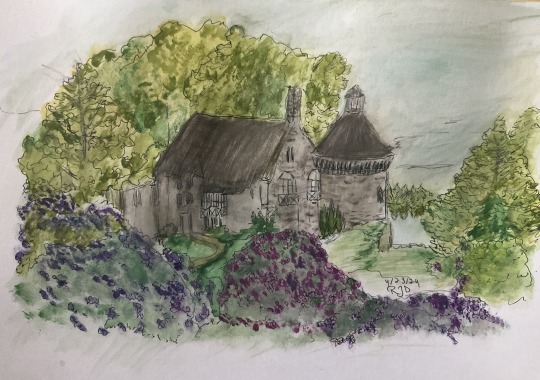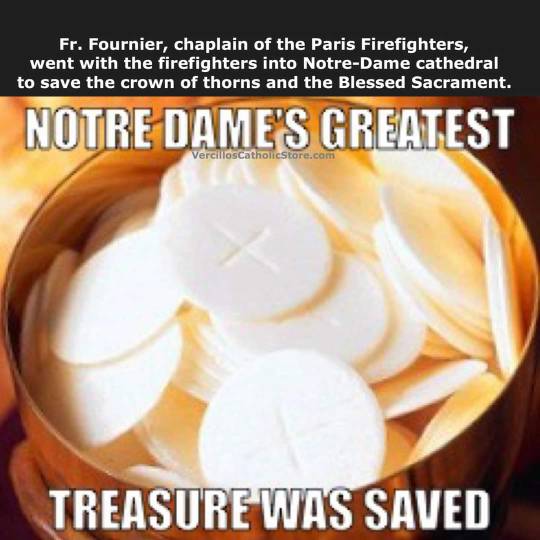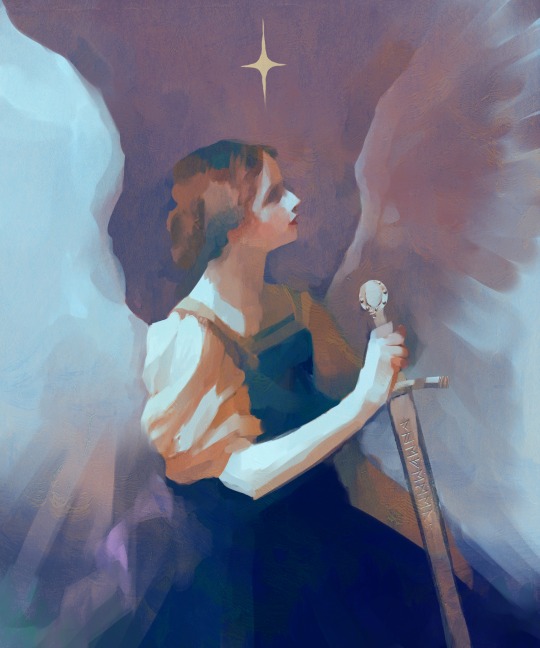Text

Based rather loosely on a picture of Scotney Castle. Mistakes made me deviate from the reference
56 notes
·
View notes
Text
““Dorothy reminds me in so many ways of Toni Morrison,” West said. “You know Toni Morrison is Catholic. Many people do not realize that she is one of the great Catholic writers. Like Flannery O’Connor, she has an incarnational conception of human existence. We Protestants are too individualistic. I think we need to learn from Catholics who are always centered on community.”
(…)
She viewed belief in God as “an intellectual experience that intensifies our perceptions and distances us from an egocentric and predatory life, from ignorance and from the limits of personal satisfactions”—and affirmed her Catholic identity. “I had a moment of crisis on the occasion of Vatican II,” she said. “At the time I had the impression that it was a superficial change, and I suffered greatly from the abolition of Latin, which I saw as the unifying and universal language of the Church.”
Morrison saw a problematic absence of authentic religion in modern art: “It’s not serious—it’s supermarket religion, a spiritual Disneyland of false fear and pleasure.” She lamented that religion is often parodied or simplified, as in “those pretentious bad films in which angels appear as dei ex machina, or of figurative artists who use religious iconography with the sole purpose of creating a scandal.” She admired the work of James Joyce, especially his earlier works, and had a particular affinity for Flannery O’Connor, “a great artist who hasn’t received the attention she deserves.”
What emerges from Morrison’s public discussions of faith is paradoxical Catholicism. Her conception of God is malleable, progressive, and esoteric. She retained a distinct nostalgia for Catholic ritual, and feels the “greatest respect” for those who practice the faith, even if she herself wavered. In a 2015 interview with NPR, Morrison said there was not a “structured” sense of religion in her life at the moment, but “I might be easily seduced to go back to church because I like the controversy as well as the beauty of this particular Pope Francis. He’s very interesting to me.”
Morrison’s Catholic faith—individual and communal, traditional and idiosyncratic—offers a theological structure for her worldview. Her Catholicism illuminates her fiction; in particular, her views of bodies, and the narrative power of stories. An artist, Morrison affirmed, “bears witness.” Her father’s ghost stories, her mother’s spiritual musicality, and her own youthful sense of attraction to Christianity’s “scriptures and its vagueness” led her to conclude it is “a theatrical religion. It says something particularly interesting to black people, and I think it’s part of why they were so available to it. It was the love things that were psychically very important. Nobody could have endured that life in constant rage.” Morrison said it is a sense of “transcending love” that makes “the New Testament . . . so pertinent to black literature—the lamb, the victim, the vulnerable one who does die but nevertheless lives.”
(…)
Morrison is describing a Catholic style of storytelling here, reflected in the various emotional notes of Mass. The religion calls for extremes: solemnity, joy, silence, and exhortation. Such a literary approach is audacious, confident, and necessary, considering Morrison’s broader goals. She rejected the term experimental, clarifying “I am simply trying to recreate something out of an old art form in my books—the something that defines what makes a book ‘black.’”
(…)
Morrison was both storyteller and archivist. Her commitment to history and tradition itself feels Catholic in orientation. She sought to “merge vernacular with the lyric, with the standard, and with the biblical, because it was part of the linguistic heritage of my family, moving up and down the scale, across it, in between it.” When a serious subject came up in family conversation, “it was highly sermonic, highly formalized, biblical in a sense, and easily so. They could move easily into the language of the King James Bible and then back to standard English, and then segue into language that we would call street.”
Language was play and performance; the pivots and turns were “an enhancement for me, not a restriction,” and showed her that “there was an enormous power” in such shifts. Morrison’s attention toward language is inherently religious; by talking about the change from Latin to English Mass as a regrettable shift, she invokes the sense that faith is both content and language; both story and medium.
From her first novel on forward, Morrison appeared intent on forcing us to look at embodied black pain with the full power of language. As a Catholic writer, she wanted us to see the body on the cross; to see its blood, its cuts, its sweat. That corporal sense defines her novel Beloved (1988), perhaps Morrison’s most ambitious, stirring work. “Black people never annihilate evil,” Morrison has said. “They don’t run it out of their neighborhoods, chop it up, or burn it up. They don’t have witch hangings. They accept it. It’s almost like a fourth dimension in their lives.”
(…)
Morrison has said that all of her writing is “about love or its absence.” There must always be one or the other—her characters do not live without ebullience or suffering. “Black women,” Morrison explained, “have held, have been given, you know, the cross. They don’t walk near it. They’re often on it. And they’ve borne that, I think, extremely well.” No character in Morrison’s canon lives the cross as much as Sethe, who even “got a tree on my back” from whipping. Scarred inside and out, she is the living embodiment of bearing witness.
(…)
Morrison’s Catholicism was one of the Passion: of scarred bodies, public execution, and private penance. When Morrison thought of “the infiniteness of time, I get lost in a mixture of dismay and excitement. I sense the order and harmony that suggest an intelligence, and I discover, with a slight shiver, that my own language becomes evangelical.” The more Morrison contemplates the grandness and complexity of life, the more her writing reverts to the Catholic storytelling methods that enthralled her as a child and cultivated her faith. This creates a powerful juxtaposition: a skilled novelist compelled to both abstraction and physicality in her stories. Catholicism, for Morrison, offers a language to connect these differences.
For Morrison, the traits of black language include the “rhythm of a familiar, hand-me-down dignity [that] is pulled along by an accretion of detail displayed in a meandering unremarkableness.” Syntax that is “highly aural” and “parabolic.” The language of Latin Mass—its grandeur, silences, communal participation, coupled with the congregation’s performative resurrection of an ancient tongue—offers a foundation for Morrison’s meticulous appreciation of language.
Her representations of faith—believers, doubters, preachers, heretics, and miracles—are powerful because of her evocative language, and also because she presents them without irony. She took religion seriously. She tended to be self-effacing when describing her own belief, and it feels like an action of humility. In a 2014 interview, she affirmed “I am a Catholic” while explaining her willingness to write with a certain, frank moral clarity in her fiction. Morrison was not being contradictory; she was speaking with nuance. She might have been lapsed in practice, but she was culturally—and therefore socially, morally—Catholic.
The same aesthetics that originally attracted Morrison to Catholicism are revealed in her fiction, despite her wavering of institutional adherence. Her radical approach to the body also makes her the greatest American Catholic writer about race. That one of the finest, most heralded American writers is Catholic—and yet not spoken about as such—demonstrates why the status of lapsed Catholic writers is so essential to understanding American fiction.
A faith charged with sensory detail, performance, and story, Catholicism seeps into these writers’ lives—making it impossible to gauge their moral senses without appreciating how they refract their Catholic pasts. The fiction of lapsed Catholic writers suggests a longing for spiritual meaning and a continued fascination with the language and feeling of faith, absent God or not: a profound struggle that illuminates their stories, and that speaks to their readers.”
49 notes
·
View notes
Text
NaPoWriMo #24: A poem that starts with a line from another poem
Because I could not stop for Death
I simply never died
His Carriage can't catch up with me
However hard he's tried.
I've just got too much life to live
Too many things to see
To leave our grand and glorious world
For Immortality
Perhaps a couple hundred years
Will rob my life of zest
But until then I will decline
To be the Reaper's guest
So let him chase me 'cross the ways
Past lands of setting sun
I plan to stay one step ahead
And revel in the fun
#napowrimo 2024#poetry#apologies to emily#i just thought of the first two lines and giggled so much that i couldn't think of writing anything else#i wanted it to be a bit more of 'the epic life of the immortal'#mixed with general joie de vivre#celebrating life in a world that can be so pro-death#but it fell into this shape instead and i don't want to overlabor it#it takes away from the fun
45 notes
·
View notes
Text
NaPoWriMo #23: A poem about someone who wishes to be something else
Prayer to the Creator
Sculptor of mountains
Turn my stony heart to clay
Let Your hand shape me
Into a vessel pure and holy
For the water of Your grace
Painter of sunrises
Wash my soul with Light
Strip away what's dull and gray
Cover me with countless colors
To blaze your Beauty in our blinded world
Maker of mosaics
Shatter what I am
Make of me a million shards of gold and glass
Your hands can set in pleasing patterns
To catch Your Light in Holy Fire
Keeper of the Garden
Tend my tangled roots
Prune away what's dead in me and
Train me toward the Light
So I may burst in brilliant bloom
Weaver of worlds
Make my life a brilliant thread
Vital to the masterpiece
You've woven since the world's beginning,
and will show us at the end of days.
Creator of all
Make my life a work of art
Refined always by Your master hand
Until at last You deem me worthy
To display in Your eternal hall.
30 notes
·
View notes
Text
Any storyteller at all: Do you want to hear a story about a guy who was never meant to be king, but ended up having to take the throne? And it was hard.
Me: Oooooooh?
The storyteller: And not just hard in itself - there was sinister plotting beneath the surface, and interpersonal stuff was complicated too.
Me: Oooooooooh!
132 notes
·
View notes
Text
#keyboard because you can use all ten fingers instead of just thumbs!#plus the keys are big so you don't make a minimum five typos per sentence
6K notes
·
View notes
Text

#the nobel peace prize exists because nobel felt guilty for inventing tnt#jerome lejeune discovered the cause of down's syndrome and helped invent the prenatal test for it#because he loved these children and wanted to help parents prepare to care for them#and then when getting the top honor in genetics for it he called out the international scientific community#for how evil they were for using his test to kill children#(and thus lost his nobel)#and later served as the first head of the vatican's pontifical academy for life
17K notes
·
View notes
Note
What do you think Sauron’s opinion of Elrond was?
There’s a line in Two Towers (I think) I was going to look up to answer this, except I got lazy, where Gollum says Sauron hates something and Frodo responds like “What doesn’t he hate?”
So I’m going to go out on a limb and say Sauron hates Elrond.
But to actually contribute something not obvious to the conversation, I think of all his biggest adversaries, he is most likely to underestimate Elrond.
Elrond’s influence is huge but we only see him give his advice to those who came to him voluntarily, he hides away but not so well he can’t be found in need. He’s a healer, not a warrior or a king, and he doesn’t have the ambition Galadriel has.
Heir of Luthien? Hate that. Uses his power to influence events mainly by being a well of knowledge and a safe place to weather storms? Sauron doesn’t understand that.
Elrond ultimately defeats Sauron by raising children with love, helping those in need, not seeking power and giving solid advice. He puts together the fellowship, but doesn’t even put his name on it, he helps everyone there see what has to be done by letting them suggest options and showing them how those ideas are infeasible, and making sure everyone has the whole story. He takes advice as well, he sends Pippin instead of Glorfindel at Gandalf’s suggestion. He gently refuses to let the fellowship swear an oath.
One of my favorite moments from the council of Elrond is when they’re like “Who will do this task” and Elrond goes quiet. It is NOT because he doesn’t know who would be best for it. But he knows Frodo has to choose on his own, he cannot force him, or what little hope they have will be gone. The MOMENT Frodo says he’ll do it, Elrond says he is the only person who can, but he doesn’t lay that on him until he is committed.
If everyone had rolled up to Rivendell and Elrond had just said “you nine go drop the ring in Mt doom” and sent the same exact people? The fellowship would have failed, because the understanding wouldn’t have been there. Elrond handled that council to perfection, and that is the kind of passive power based in understanding that is sooooo vital to the downfall of Sauron, but which Sauron does not value or comprehend.
The people that scare Sauron are people who want the ring. He is 100% confident that without the power of the ring, he cannot be beaten, and the fact that middle earth would fall to darkness even if Galadriel or Gandalf took it is pretty weak recompense for him if he is defeated.
Elrond never even entertains the idea that he would take the ring (at least in our view). Every bearer of an Elven Ring (and Aragorn) is offered it. Gandalf first when Frodo first learns what it is, and he tells us what he would do with it and why it would be a bad idea. Galadriel most famously, and she had literally dreaded the idea of the ring coming through Lothlorien because she knew she wanted it, and famously refusing it was a trial for her.
There is no moment when Elrond is DIRECTLY offered the Ring by Frodo. But the entire first half of the book the goal is “get the Ring to Rivendell” where Elrond will know what to do with it, and it will be safe. In the beginning the hobbits have no concept of going further than that- so basically the idea is “put the Ring in Elrond’s power” for the first half of the book.
And Frodo arrives half dead to Rivendell, completely alone and vulnerable, and Elrond heals him, and never is there even discussion of whether Elrond could have taken it from him then, or if he was tempted to. The only thing Elrond says on the topic of the Ring being given to him is that Rivendell cannot keep it safe from the Enemy.
Taking the Ring to Minas Tirith clearly the equivalent of giving the Ring to Denethor. Galadriel clearly fears that the Ring coming to Lothlorien will be her downfall because it will be in her power and she knows she wants it.
Elrond is never shown even considering taking it. The Ring staying in Rivendell would be bad according to him because they could not withstand Sauron’s full force bent towards extracting it. Even in this scenario where the Ring remains in Rivendell, Elrond discounts a possibility that he would be tempted to use it to keep Sauron out.
Sauron is physically incapable of thinking of someone like that as a threat, it is his biggest weakness, and that’s why the plan Elrond facilitates is the one that ultimately takes him out.
1K notes
·
View notes
Text
NaPoWriMo #22: A poem focusing on a single color
Dreams of Blue
O keep me in the deep blue night
Beneath a cobalt sky
Let the stars be sapphire
As they go whirling by
Wrap me in an azure cloak
Atop a cyan bed
With cushions of cerulean
Beneath my weary head.
Let daytime keep its rainbow fair
With every shade and hue.
Take all the world and let me rest
Within my dreams of blue
29 notes
·
View notes
Text
NaPoWriMo #21: A triolet
This poetry form with several repeating lines seemed perfect for a poem about time travel.
A Time Traveler's Romance
Although you first met me today
I know you very well.
We've loved in time's most tangled way
Although you first met me today.
When we've shared years of work and play,
my younger self this tale you'll tell
"Although you first met me today
I know you very well."
37 notes
·
View notes
Text
Captain Wentworth had no fortune. He had been lucky in his profession; but spending freely, what had come freely, had realized nothing. But he was confident that he should soon be rich: full of life and ardour, he knew that he should soon have a ship, and soon be on a station that would lead to everything he wanted. He had always been lucky; he knew he should be so still. Such confidence, powerful in its own warmth, and bewitching in the wit which often expressed it, must have been enough for Anne; but Lady Russell saw it very differently. His sanguine temper, and fearlessness of mind, operated very differently on her. She saw in it but an aggravation of the evil. It only added a dangerous character to himself. He was brilliant, he was headstrong. Lady Russell had little taste for wit, and of anything approaching to imprudence a horror. She deprecated the connexion in every light.
It's interesting to me, Persuasion is the last novel Austen wrote and she had this trend prior of "W" being a villain (Wickham and Willoughby) and this paragraph about Wentworth makes me think about her other dubious men. He's gambled or spent all his money away, just like the other two, he's confident he'll get more. Wentworth and Henry Tilney are the only heroes with wit, but only Wentworth has this magnetic charm that seems to draw every woman in the room. Very Wickham of him, recall how drawn every female was to him when he came into Meryton. Wentworth feels a lot like Austen's villains, especially at first.
It makes me feel that Lady Russell was right to be worried. This sort of magnetic person, with very pretty words but no substance to back it up. It could have been a Willoughby-esq whirlwind romance and left Anne with nothing.
#i made this exact post about this exact passage the second-to-last time i read this book#that paragraph was a punch to the throat#and i'm with lady russell on this one#it took anne's rejection to sober him enough to keep his money this go-around#persuasion#jane austen
255 notes
·
View notes







